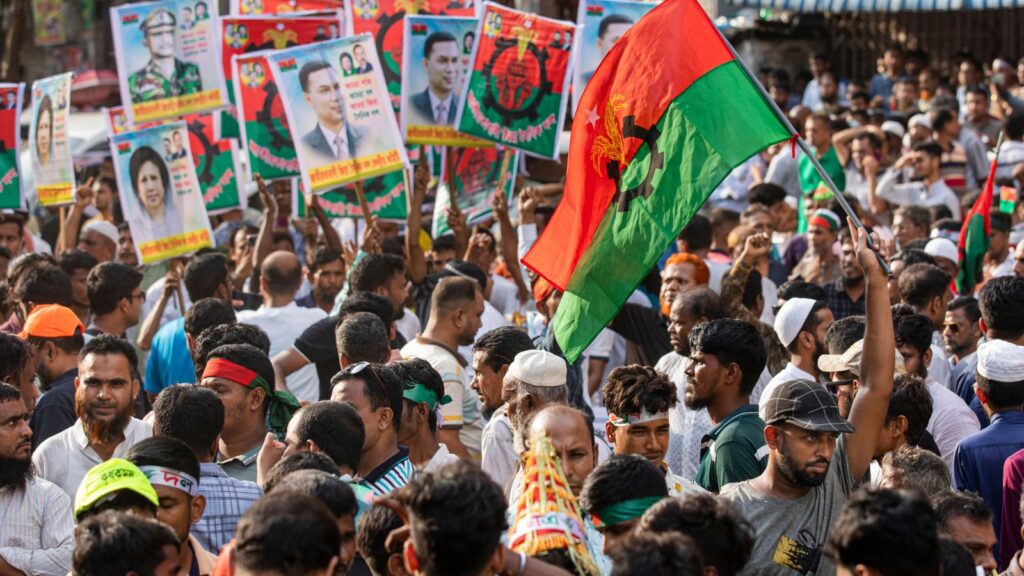On Tuesday, thousands of activists and leaders from the Bangladesh Nationalist Party (BNP) rallied in Dhaka to call for a democratic transition through a new election. The interim government, led by Nobel laureate Muhammad Yunus, is yet to set a timetable for new voting, prompting the BNP to demand clarity on the issue, according to a report by Associated Press.
The supporters gathered outside BNP headquarters in Dhaka, chanting slogans for a new election. Yunus’s interim administration has introduced several reforms, including changes to the Election Commission and financial institutions.
However, major political parties, including the BNP led by former Prime Minister Khaleda Zia, are pressing for a new election soon.
Yunus assumed office after former Prime Minister Sheikh Hasina fled the country amidst widespread protests last month, ending her 15-year tenure. The protests, which began in July, escalated into a broader anti-government movement. Hasina has since taken refuge in India.


In recent speeches, Yunus has not specified when a national election will occur, indicating that his government will remain in place as long as necessary. A group of newspaper editors recently suggested that Yunus should complete essential reforms and stay in power for at least two years.


Initially, the BNP had demanded an election within three months but later agreed to give the interim government more time for reforms. The Jamaat-e-Islami party, formerly allied with Zia’s party, also supports extending the interim period.
Tarique Rahman, BNP’s acting chairman and Zia’s heir apparent, addressed a rally from London, where he has been in exile since 2008. Rahman expressed support for Yunus’s reform plans but emphasised that these reforms must be endorsed by a new parliament.
“Only a free and fair election can ensure the political empowerment of the people,” Rahman stated, adding that reforms should focus on establishing an elected parliament and government.
 Since Hasina’s departure, over 150 journalists have faced charges, including murder and crimes against humanity. (AP)
Since Hasina’s departure, over 150 journalists have faced charges, including murder and crimes against humanity. (AP)
In a separate development, a Dhaka court authorised the interrogation of two senior journalists facing murder charges while in custody.
Shyamal Dutta, editor of Bhorer Kagoj, and Mozammel Babu, managing director and editor-in-chief of Ekattor TV, were arrested as they allegedly attempted to flee to India. They face charges related to student-led protests and were known to be close to the ousted Hasina.
Since Hasina’s departure, over 150 journalists have faced charges, including murder and crimes against humanity. This crackdown has drawn criticism from international organisations such as Reporters Without Borders (RSF) and Human Rights Watch.
Antoine Bernard, RSF’s Director of Advocacy and Assistance, condemned the “vicious process” targeting journalists, urging Yunus’s interim authorities to halt these actions. Meenakshi Ganguly of Human Rights Watch also expressed concern over the continuation of abusive and partisan practices in the justice system.
(with inputs from AP)


